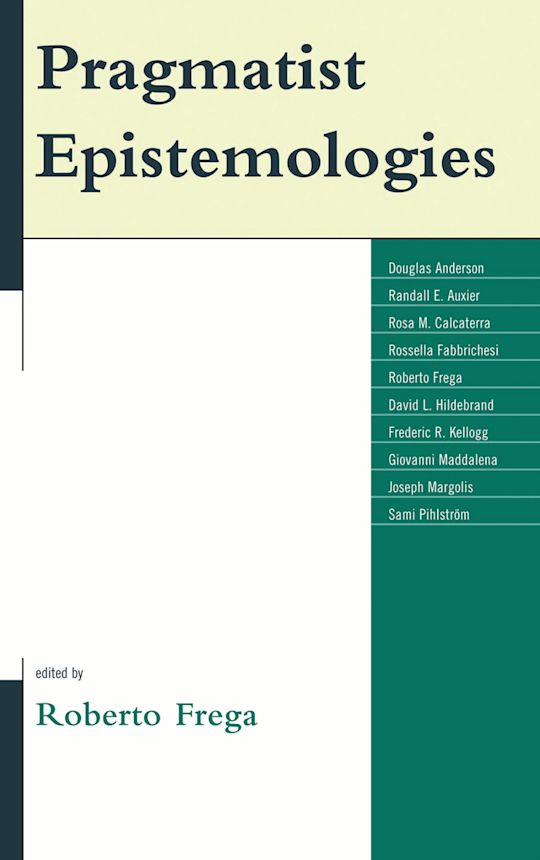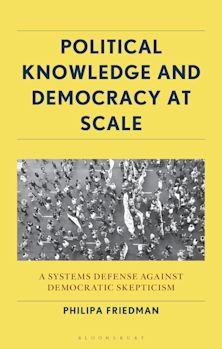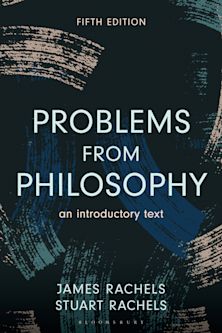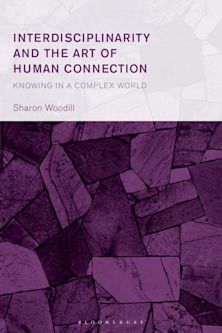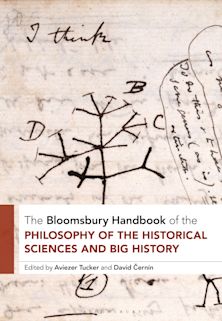- Home
- ACADEMIC
- Philosophy
- Epistemology
- Pragmatist Epistemologies
Pragmatist Epistemologies
Roberto Frega (Anthology Editor) , Douglas Anderson (Contributor) , Giovanni Maddalena (Contributor) , David L. Hildebrand (Contributor) , Rosa Maria Calcaterra (Contributor) , Joseph Margolis (Contributor) , Sami Pihlströ (Contributor) , Rossella Fabbrichesi (Contributor) , Frederic R. Kellogg (Contributor) , Randall Auxier (Contributor)
Pragmatist Epistemologies
Roberto Frega (Anthology Editor) , Douglas Anderson (Contributor) , Giovanni Maddalena (Contributor) , David L. Hildebrand (Contributor) , Rosa Maria Calcaterra (Contributor) , Joseph Margolis (Contributor) , Sami Pihlströ (Contributor) , Rossella Fabbrichesi (Contributor) , Frederic R. Kellogg (Contributor) , Randall Auxier (Contributor)
For information on how we process your data, read our Privacy Policy
Thank you. We will email you when this book is available to order
You must sign in to add this item to your wishlist. Please sign in or create an account
Description
Pragmatist Epistemologies unites new trends in the study of knowledge inspired by the pragmatist tradition. Edited by Robert Frega, this collection of articles from leading American and European scholars engages contemporary issues such as evolutionary epistemology, realism, and the foundation of ethics, as well as exploring pragmatist epistemologies from a historical perspective. In the best pragmatist tradition, the essays present the wide scope of epistemology, from the dimension of belief to the dimension of observation and ranging from theoretical epistemology to practical and moral epistemology. In assembling this volume, Frega opens a new avenue of research in contemporary pragmatism that is continuous with the main figures of the pragmatist tradition while acknowledging the necessity of strengthening this dialogue with contemporary trends in philosophy. Students and scholars of American philosophy and students in the social sciences will gain greatly from this exploration and synthesis of new and old ideas in pragmatist epistemology.
Table of Contents
Chapter 2 Chapter 1. Peirce, Observation, and the Discipline of Writing
Chapter 3 Chapter 2. Vague/Analytic/Synthetic: Peirce versus Kant
Chapter 4 Chapter 3. Could Experience Be More than a Method? Dewey's Practical Starting Point
Chapter 5 Chapter 4. The Conceptual Pragmatism of C. I. Lewis
Chapter 6 Chapter 5. A New Answer to the Question, What is Moral Philosophy?
Chapter 7 Chapter 6. A Pragmatist Realist Epistemology
Chapter 8 Chapter 7. Evolutionary Prolegomena to a Pragmatist Epistemology of Belief
Chapter 9 Chapter 8. Truth Effects: The Darwinian Revolution and Its Impact on Pragmatism
Chapter 10 Chapter 9. Legal Fallibilism: Law as a Form of Community Inquiry
Chapter 11 Chapter 10. Two Types of Pragmatism
Product details
| Published | 16 Sep 2011 |
|---|---|
| Format | Ebook (Epub & Mobi) |
| Edition | 1st |
| Extent | 218 |
| ISBN | 9780739169872 |
| Imprint | Lexington Books |
| Publisher | Bloomsbury Publishing |
About the contributors
Reviews
-
Pragmatist Epistemologies contributes fresh insights from an international group of leading philosophers on the key question: how can we interrelate the processes and findings of the sciences with the felt qualities and needs of daily life? Through their shared emphasis on consequences, practice, and experience, these authors draw on the rich tradition of pragmatist thought to address contemporary issues about knowing, valuing, and choosing in clear and persuasive ways. This book will be valuable to scholars across intellectual traditions and disciplines, as well as to educated readers who hope and believe that philosophy can help us think more clearly about the problems of our lives and times.
Judith M. Green, Fordham University
-
A timely and engaging collection on one of the major recent movements in philosophy and social theory. Firmly embedded in historically grounded scholarship, but always with an eye on future inquiries, the essays of Pragmatist Epistemologies validate pragmatism as a truly living tradition of thought.
Mats Bergman, University of Helsinki









